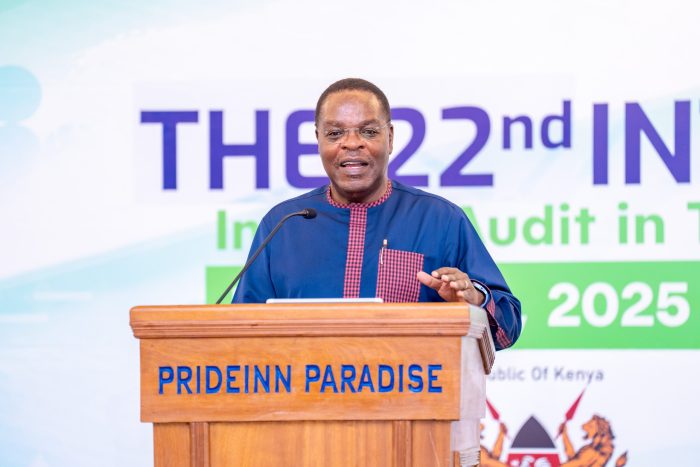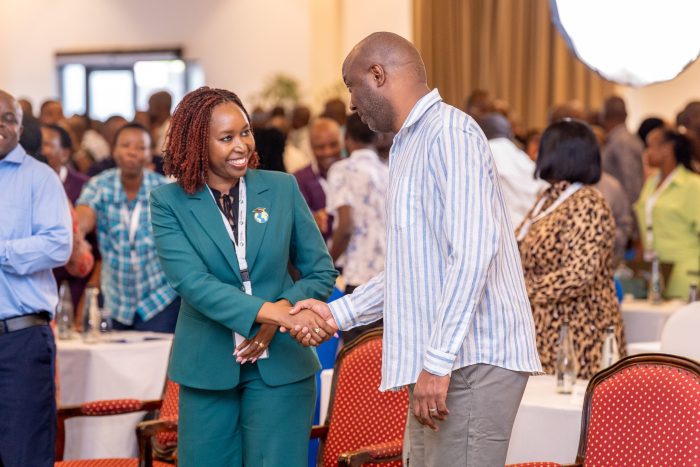MOMBASA: Leaders from government oversight institutions and county administrations have called for comprehensive reforms to strengthen the role and independence of internal auditors in Kenya, as the profession adapts to new technologies, governance frameworks, and global standards.
The calls came during the 22nd Internal Audit Seminar convened by the Institute of Internal Auditors (IIA) Kenya in collaboration with the Office of the Internal Auditor General at the National Treasury. The annual forum brought together practitioners from the public and private sectors to discuss the evolving role of internal audit in ensuring accountability and risk management across all levels of government.

Murang’a Governor Dr. Irungu Kang’ata underscored the importance of positioning internal auditors closer to decision-makers within county governments. He proposed that county auditors report directly to governors to enhance their effectiveness in fighting waste.
“We propose that internal auditors be able to report directly to governors so that the function is strengthened,” said Dr. Kang’ata.
“Automation and digitization have been key for us. In Murang’a, our own-source revenue has grown from KSh400 million to KSh1.3 billion in two years without raising taxes. That shows automation is the way,” he added.
Dr. Kang’ata urged continued training in systems audit to enable auditors to assess and improve automated processes.
IIA Kenya Chairperson Lillian Wangechi Mwangi said the seminar aimed to build capacity among auditors to handle emerging issues such as artificial intelligence, cash-to-accrual accounting, and the government’s e-Government Procurement (EGP) system.
She said the institute is pushing for two major reforms, the proper positioning of internal audit functions at higher organizational levels, and the enactment of an Internal Audit Bill and Act to formalize and protect the profession.
“We advocate that internal audit functions be placed at level two to ensure authority and independence,” said Wangechi. “Legal reforms are also critical, enacting the Internal Audit Act will be a game changer in recognizing and protecting internal auditors from retaliation while regulating the profession.”
Wangechi added that the IIA was working closely with the National Treasury and the Internal Auditor General to strengthen capacity in public sector audit functions.

Ethics and Anti-Corruption Commission (EACC) Chairperson Bishop David Oginde highlighted internal auditors as essential partners in both corruption prevention and enforcement.
“Internal auditors help us prevent the loss of public resources,” Oginde said. “They monitor, detect, and seal potential leakages before they occur. When investigations arise, they provide critical documentation and insights into what went wrong.”
Public Service Commission CEO Paul Famba echoed the need for correct placement of internal auditors in ministries and agencies, saying they should act as strategic advisers rather than compliance officers.
“We are keen on ensuring internal auditors are placed at the right level so they have sufficient authority to advise management,” said Famba. “They play a strategic advisory role to ensure prudent use of resources.”
Representing the National Treasury, Internal Auditor General Sammy Kimunguyi said Kenya has adopted new Global Internal Audit Standards 2024, issued through a Treasury circular in September, marking a major shift in public sector audit practice.
“We have transitioned to more strategic, proactive, and futuristic internal audit functions focused on building strong risk management practices,” Kimunguyi said. “We expect to see fewer audit issues from external auditors because internal auditors are being empowered to anticipate and mitigate risks.”
He emphasized the need for auditors to diversify their skills to address technological, cybersecurity, environmental, social, and governance risks, and to support the government’s Zero Fault Audit initiative aimed at reducing repeat audit issues.
The 22nd Internal Audit Seminar underscored a shared vision among stakeholders for a modern, independent, and tech-driven internal audit profession capable of bolstering transparency, efficiency, and accountability in Kenya’s public sector.









